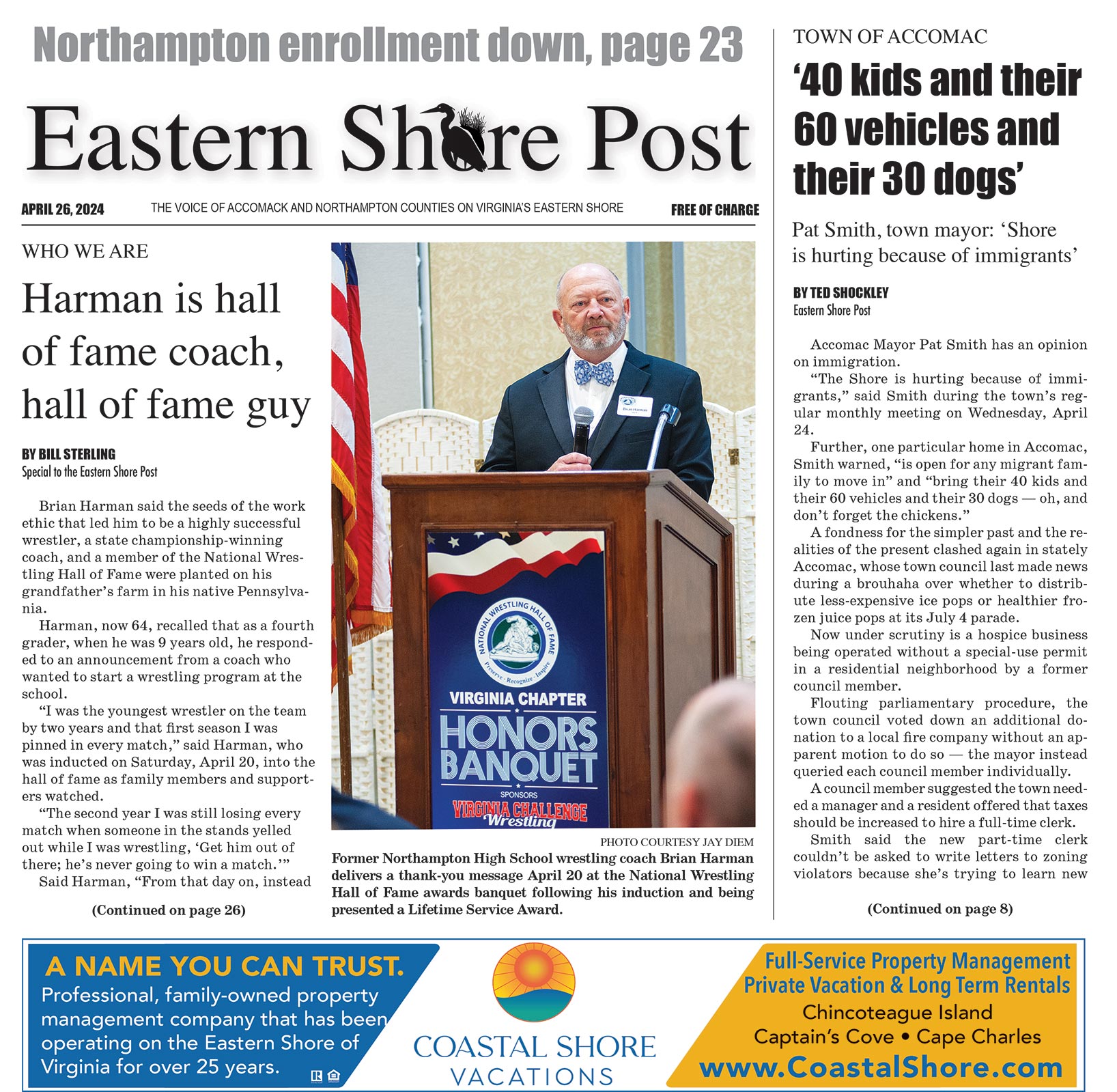BY TED SHOCKLEY, Eastern Shore Post —
It is probably time to update the Eastern Shore Racial Relations Scorecard, a running tally I keep of real and perceived offenses.
Some folks use their spare time watching “The Price is Right” on television, or posting photos on social media of beer-fueled boating trips.
But during some of my spare time, I fret and wring my hands while taking note of the Eastern Shore’s misadventures in racial relations. And I celebrate our community triumphs.
For example, 2019 was an odd year in Eastern Shore racial relations because the sitting governor, an Eastern Shore native, was alleged to have appeared in blackface in a medical-school yearbook.
We had a much stronger year in local racial relations in 2020 after many of us — in Exmore, in Accomac, and on Chincoteague — marched for unity in the wake of the horrible George Floyd murder in Minnesota.
Last year was challenging after a local kid publicized on social media a hand-drawn poster for his homecoming date that read, “If I was Black I would be picking cotton. But I’m White so I’m picking you.”
Some people get squeamish when racial relations are discussed, crawl under their desks after the first whiff, and would rather have a colonoscopy than speak of it.
But I think even a clumsy conversation about racial relations promotes understanding and reconciliation.
And because the Eastern Shore is increasingly multicultural, we all need to be understanding and respectful of backgrounds and heritages different from our own.
One of the more eye-opening comments I’ve heard this year pertained to Bay Creek, the massive Cape Charles community.
Cape Charles police officers had been called because an unfamiliar Black teen had been seen driving a golf cart. Two cars responded and pulled the cart to the side of Bay Creek Parkway.
The Black youth wasn’t found to have broken the law. He was just seen in a gated, affluent community, as if young, Black folks were an inherent threat in such a place.
The larger question is, how do we help people understand that it is not a crime to be young and Black in public?
There has been plenty of howling and gnashing of teeth after a video circulated of Cedrick Cooper, a candidate for the office of Accomack County Circuit Court Clerk, speaking Sept. 17 at Gaskins Chapel AME Church in Onancock.
Cooper, a Black man speaking to a Black audience, said, “Especially when we stick together, they fear us.”
I telephoned Cooper and asked him who “they” and “us” were, because it seemed he was saying White people fear Black people, especially given the context of the previous remarks.
(That fear apparently does indeed exist among some in gated, affluent communities, but I’m trying to fix that.)
I’m pretty open-minded, but the comment bothered me. I’m a White guy and I fear some White people much more than I fear any Black person.
Cooper said his comment, “They fear us,” was not racially based. He said “they” are the people who don’t want him to win the election. The “us,” he said, was him.
“A lot of people in this community have been against me running for this office,” he said. “The reception that I’ve gotten is not what I’ve anticipated.”
Of course, cold receptions happen to many candidates. Running for office requires a thick skin.
Regardless of what Cooper meant, he created a perception he said he didn’t intend. Managing perceptions is the essence of campaigning.
The larger question is, how do we encourage candidates to draw inclusive circles around us all instead of drawing lines that divide us?
The writer is editor of the Eastern Shore Post. Reach him at [email protected]



